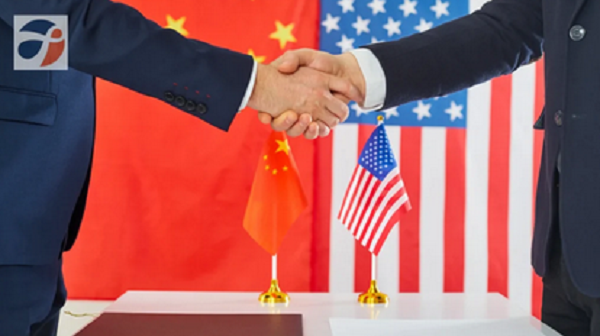Impacts of U.S. duties targeted at China on Canadian businesses
Blair Nadeau was holding her breath as she watched U.S. President Donald Trump threaten to cancel the “de minimis” exemption in February. The proposed move would eliminate a rule that enabled businesses such as hers to thrive by sending packages valued at up to US$800 to the U.S. duty-free.
With 85 per cent to 90 per cent of her sales coming from customers south of the border, removing the de minimis exemption for all imported goods, including those from Canada, would have been catastrophic.
“It felt like COVID-19 all over again, where it just felt like everything was out of my control,” said the business owner based in Brampton, Ont., who sells handmade wedding veils and accessories.
While Mr. Trump ultimately chose to abolish the exemption for China alone, small businesses like Ms. Nadeau’s have still been caught in the crosshairs. New customs regulations and stricter border control measures demanding piles of paperwork have prompted delivery delays, customer complaints and added costs for businesses whether they have ties to China or not.
The pressure hasn’t eased even as Mr. Trump slashed de minimis tariffs on direct-to-consumer parcels from China to the U.S. from 120 per cent to 54 per cent on May 12. The move came after Beijing and Washington agreed to a 90-day truce in the trade war.
Ms. Nadeau, whose products are made entirely in Canada, has spent hundreds of dollars and countless hours buying and preparing new tags and labels, creating Made-in-Canada stickers, and scrambling to ensure that the origins of all products were properly declared.
“People are going as far as to go to the Chamber of Commerce and get a certificate [of origin], which is something that’s on my list as well” she said.
What used to be a two-minute packing process for a single parcel now takes roughly 20 minutes.
With U.S. brides worried about delays and fearful of paying added fees, Ms. Nadeau said her sales fell by 30 per cent to 40 per cent last month.
The de minimis exemption has been a holy grail for businesses shipping to the U.S. over the years. Data from the U.S. Customs and Border Protection showed that more than 90 per cent of cargo coming into the U.S. in 2023 were de minimis shipments.
In 2016, the country bumped up the threshold for the exemption to US$800 from US$200 and the volume of de minimis packages to the U.S. soared, with around 1.36 billion processed just last year.
Juhee Cha, a spokesperson for Chit Chats, a Canadian shipping company, described a chaotic situation at the border after the de minimis reversal on China, affecting deliveries across the board.
“They’re inspecting everything, they’re opening things … they’re trying to see the origin marking on the actual goods because I guess they’re trying to look for failure,” she said. “It’s caused a few delays, it’s caused more strict scrutiny from border patrol officers.”
In one instance, her company had a whole truckload of goods turned around. Since then, Ms. Cha said they’ve worked to support clients in ensuring they have all the necessary paperwork to get their goods across the border or find an alternative solution for the time being.
Sellers of handmade goods who have some portion of their materials sourced from China have had an especially hard time disentangling and documenting their product origins.
“The de minimis changes impact products made in China or Hong Kong regardless of where they are shipped from,” said Tom Gould, a customs and tariff strategy consultant. “If a company is warehousing products in Canada but the products were made in China, then these are subject to the China duty.”
Ms. Cha said sellers of vintage and antique goods face further hurdles as they often lack documentation for country of origin or manufacturing information, both of which are often required. “Some of them just aren’t shipping anything,” she said.
Adding to the uncertainty for e-commerce businesses right now is a potential Canada Post strike looming.
“It’s just been so much so fast,” Ms. Nadeau said.
This article was first reported by The Globe and Mail















